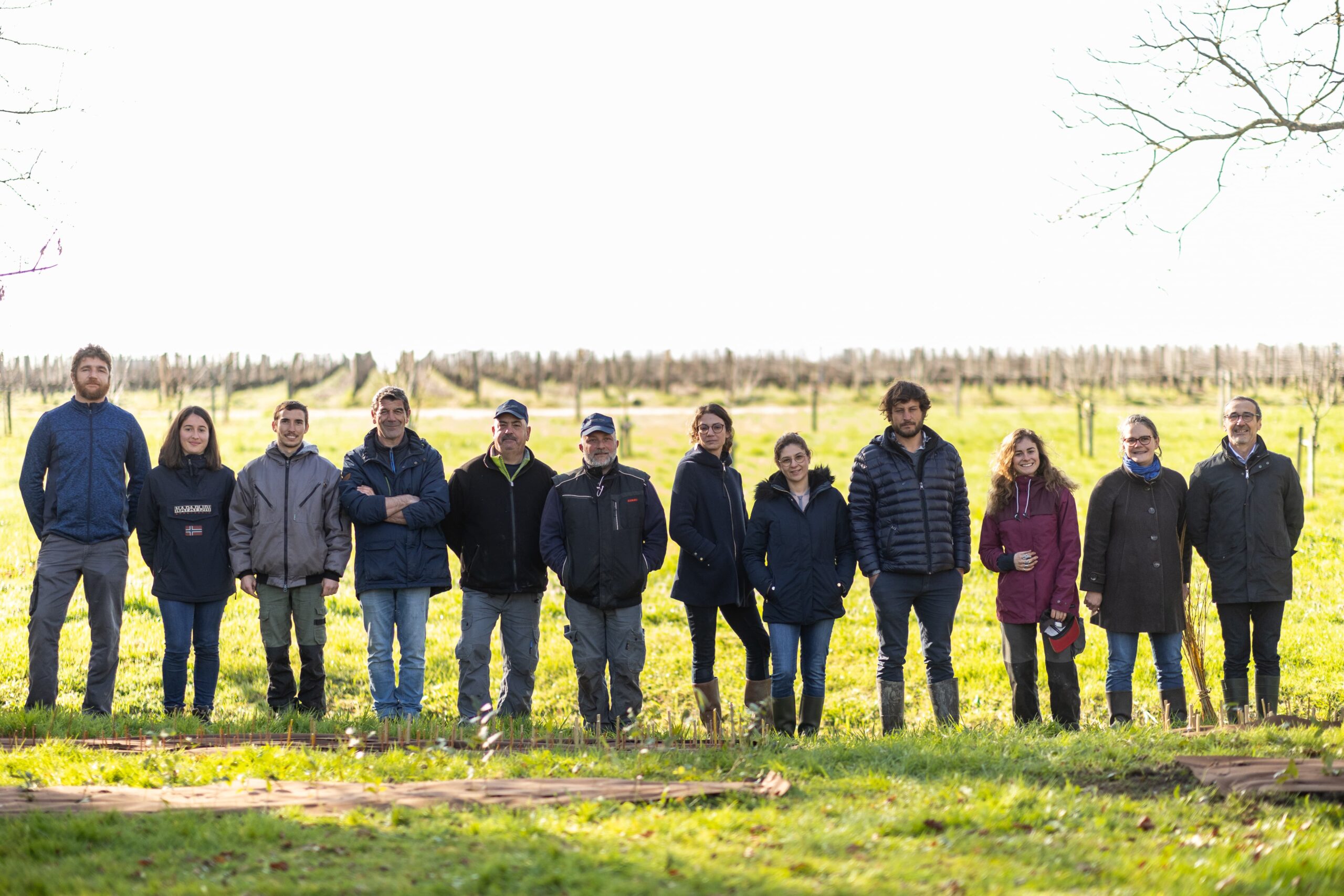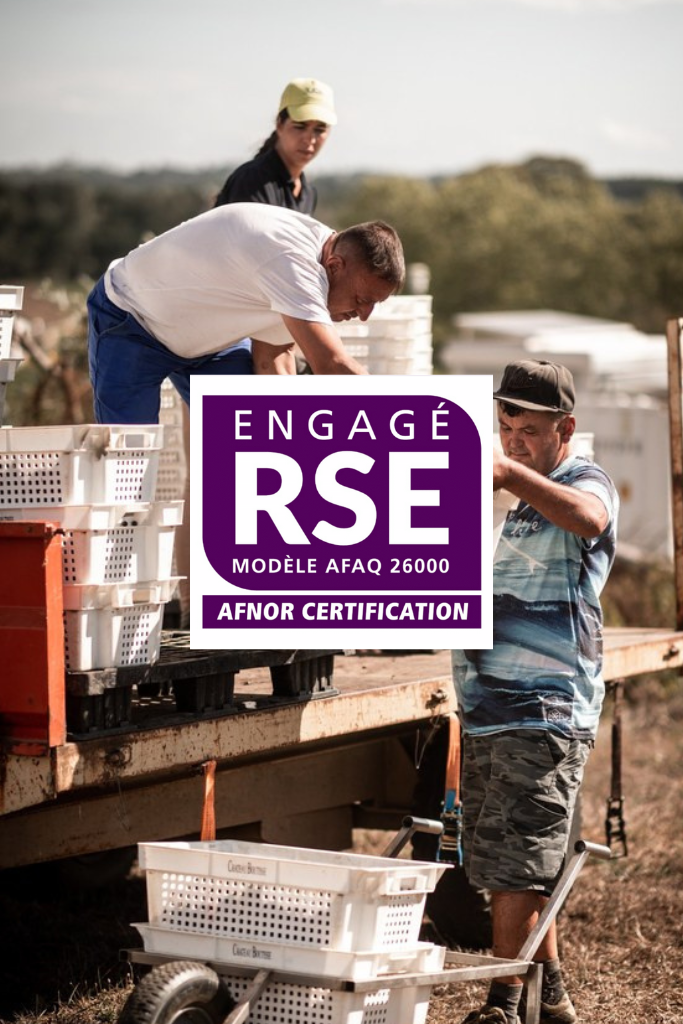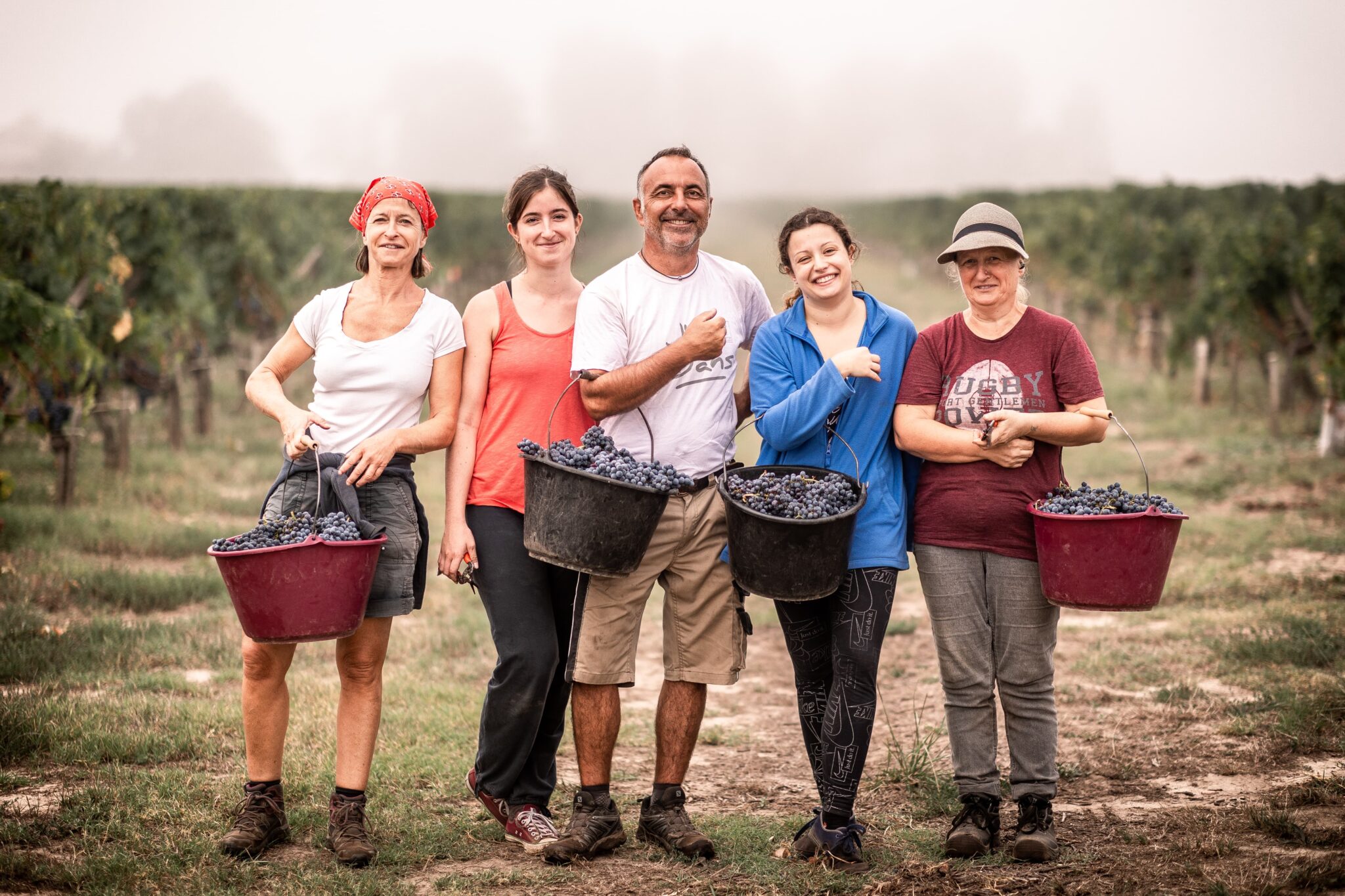



The CSR (Corporate Social Responsibility) ISO 26000 Certification, based on the international ISO 26000 standard, is formal recognition of an organization’s efforts to integrate social and environmental responsibility into its practices.
For the Saint-Emilion vineyards (Lussac Saint-Emilion, Puisseguin Saint-Emilion, Saint-Emilion and Saint-Emilion Grand Cru), this certification reflects a commitment to sustainable values and an ethical approach to wine production.
The CSR – ISO 26000 certification commits winegrowers to adopt socially responsible practices that go beyond simple wine production. This includes :
The CSR-ISO 26000 certified winegrowers are required to implement sustainable environmental practices. These include responsible management of natural resources, reducing greenhouse gas emissions and preserving biodiversity in Saint-Émilion vineyards.
Consumers can be confident in choosing wines bearing the CSR Certification, as it guarantees that vineyards meet high standards of social responsibility, business ethics, respect for human rights and environmental protection. It’s an assurance that the wine has been produced in a socially responsible manner.

The process of achieving ISO 26000 CSR certification begins with a thorough assessment of existing practices against the standard’s guidelines. This involves identifying potential areas for improvement and the measures to be taken to achieve compliance.
Winegrowers must demonstrate a commitment to participation and collaboration with stakeholders, be they workers, local communities or partner organizations. This commitment is essential to create a sustainable culture within the vineyard.
The CSR certification is not static. It requires a commitment to continuous improvement. Winegrowers must demonstrate their ability to evolve, to respond to changes in the socio-economic context and to constantly reinforce their positive impact.
One of the main objectives of the CSR certification is to promote ethics and transparency in the operations of Saint-Émilion vineyards. This strengthens consumer confidence and creates a solid foundation for fair business relationships.
The standard aims to reduce the environmental impact of winegrowing operations. This includes sustainable water management, waste reduction, and the adoption of environmentally-friendly farming practices to minimize carbon footprint.